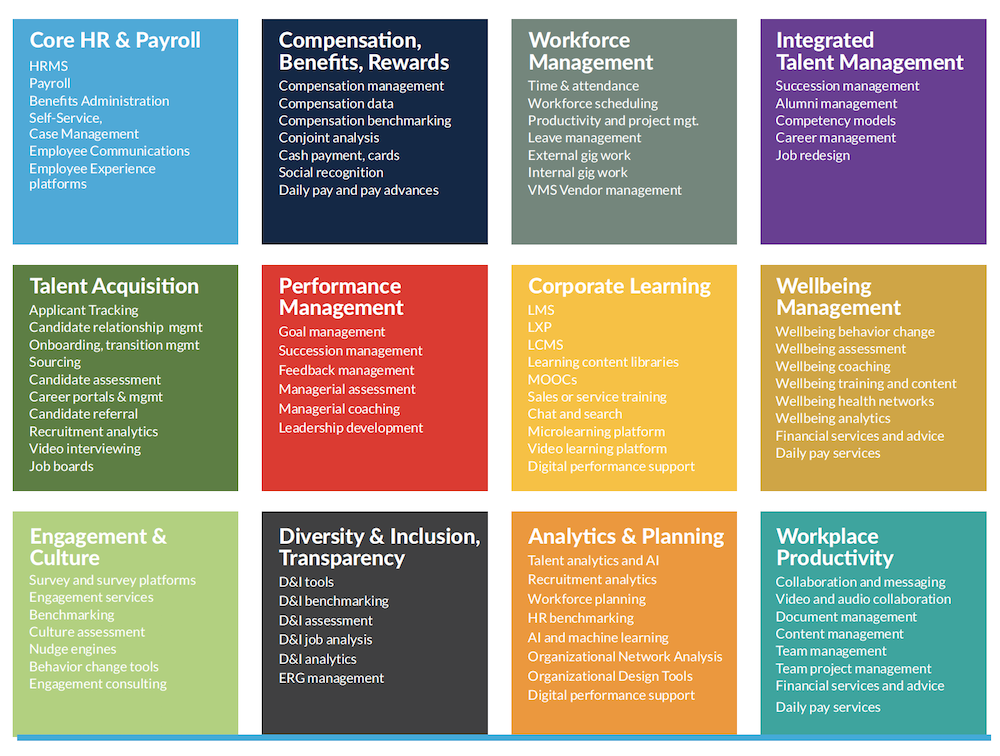Fundamentally, the importance of Human Resources Management lies in the understanding of people, and how best they can benefit an organization and vice versa.
What is Human Resources Management?
Human Resources Management is a multifaceted process throughout a company and has grown from being not only an invaluable resource for HR managers, but also a key player in the majority of company’s overall business strategy.
Why is Human Resources Management important?
The importance of Human Resources Management has significantly increased over the last 20 years, as its roles have become more multifaceted than its basic beginnings of processing the payroll, conducting interviews, noting internal grievances, etc. In today’s modern workplace it’s crucial that the work conducted by the HR team is fully integrated into the business and actively contributes towards helping it achieve its strategic goals, whether that’s by implementing individual policies or making changes across the board such as developing a more beneficial workplace culture. In this way, HRM has moved away from being a process-orientated function to one of great strategic importance.
Activities with high importance of Human Resources management:

Recruiting Staff:
When it comes to hiring employee’s it’s key to hire in accordance with the organization’s workforce needs, and furthermore, hiring people who will fit an organization’s culture and who will benefit as an individual form working in the organization.
Induction of Staff:
Vital to the hiring process is the induction of staff. Inducting staff is a great way to teach new hires the values of the company and everything they need to know to do their job. Without a comprehensive induction in which human resources management plays a vital role, the proficiency of a new hire would be hugely decreased.
Training and development:
Training and development is an important feature of human resources management as it allows for the growth of employees professionally and personally. Furthermore, it gives an opportunity for the relationship between the employee and employer to grow.
Employee Satisfaction:
One key aspect of the importance of human resources management is the ability to develop high rates of employee satisfaction. Good human resources management will administer employee opinion surveys, conduct focus groups and seek employee input regarding job satisfaction. The results taken from such practices can be put into developing policies to bolster both morale and relationships between the employer and employee, which in turn will boost productivity.
Strategic Management:
As stated before, human resources management became imperative to organizations due to its primary people processes function to become a strategic tool for a business. HR can improve a company’s bottom line with its knowledge of how human capital affects organizational success. Therefore, HR management is now factored into corporate decision making that underlies current staffing assessments and projections of future needs from the workforce in relation to the corporate demands.
Maintaining compliance:
Human resources management is not only restricted to the qualitative side of the people processes, but it also plays the essential role of ensuring an organization complies with all employment laws designated in their location. They must fill out the paperwork deeming the company as compliant with any employment law and must keep all policies up to date to maintain compliance. This is usually done through maintaining applicant flow logs, disparate impact analyses and written affirmation action plans.
So, there we have it, an explanation why human resources management is fundamental for organizations. As you can see, it goes far deeper than the daily interactions you may have with your HR team, and fundamentally is a great pillar of any organization.
Ready to 3x Your Teams' Performance?
Use the best performance management software to align goals, track progress, and boost employee engagement.

![Top 10+ HRIS Systems for 2026: The Ultimate HRIS Guide [Updated]](https://www.peoplegoal.com/blog/wp-content/uploads/2019/11/21.png)

